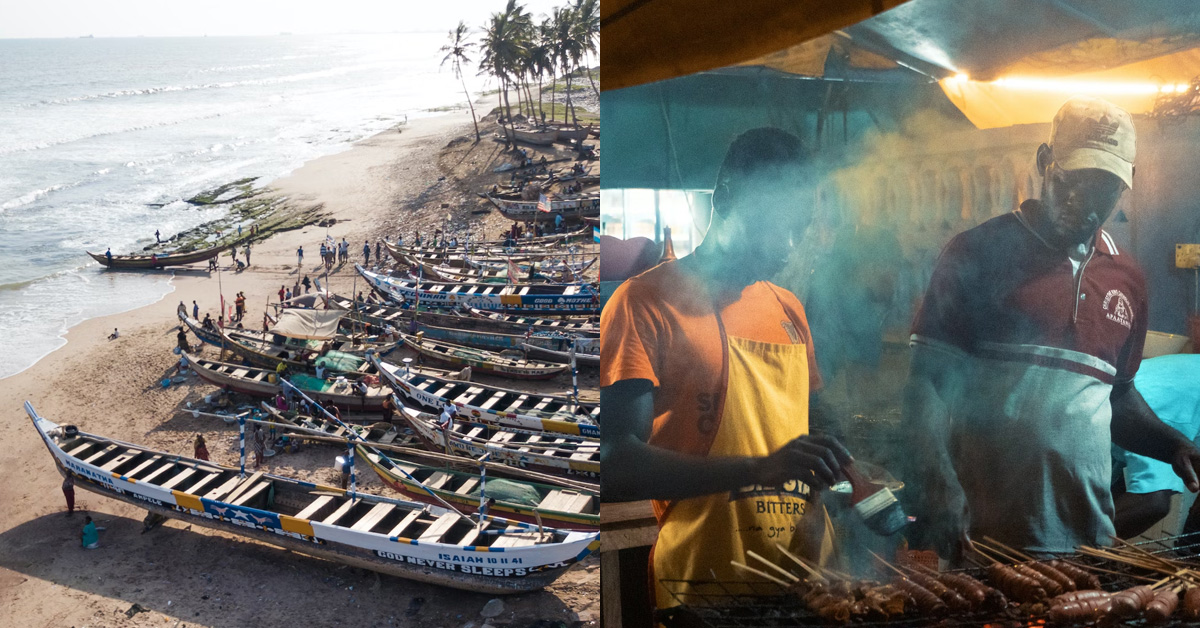Ghanaian food is a reflection of the country’s rich cultural heritage and diverse ethnic groups. The cuisine is characterized by a unique blend of flavors, spices, and ingredients that are used to create delicious and hearty meals.
From the spicy and flavorful stews to the crispy and savory snacks, Ghanaian food is a true representation of the country’s culinary traditions. The use of fresh and locally sourced ingredients is a hallmark of Ghanaian cuisine, making it not only delicious but also healthy.
Ghanaian cuisine halal or not?
Is Ghanaian food halal?
Not all Ghanaian food is halal as some dishes may contain non-halal ingredients such as pork or alcohol.
However, there are many Ghanaian dishes that are halal, such as Waakye, Jollof rice, Banku, and Kenkey, which are made with halal ingredients such as rice, beans, cornmeal, and various meats and vegetables.
It is important to check the ingredients and preparation methods of each dish to ensure that it is halal.
What kind of food do Ghanaian eat?
Ghanaian cuisine is diverse and includes a variety of dishes. Some popular Ghanaian foods include:
- Jollof rice: A spicy rice dish cooked with tomatoes, onions, and spices.
- Banku: A fermented corn and cassava dough that is cooked and served with soup or stew.
- Fufu: A starchy dough made from cassava, yam, or plantains that is usually served with soup or stew.
- Waakye: A dish made from rice and beans that is usually served with a spicy sauce.
- Kenkey: A fermented corn dough that is wrapped in banana leaves and steamed.
- Red-red: A dish made from black-eyed peas and plantains that is usually served with fried fish.
- Kelewele: Spicy fried plantains.
- Peanut soup: A soup made from groundnuts (peanuts) and served with rice or fufu.
- Grilled tilapia: A popular fish dish that is usually served with banku or rice.
- Fried rice: A dish made from rice, vegetables, and sometimes meat or seafood.
How can you tell if the food is halal in Ghana?
In Ghana, halal food is usually labeled as such, and it is often sold in specialized halal stores or restaurants. Some supermarkets and grocery stores may also carry halal-certified products.
It is important to look for halal certification symbols or logos on the packaging of the food products. You can also ask the seller or restaurant staff if the food is halal or not.
Is it hard to find halal food in Ghana?
According to research, it may be challenging to find halal food in Ghana, especially outside of major cities. However, there are some halal restaurants and markets in Accra and other urban areas that cater to the Muslim population.
It is recommended to do some research and ask locals for recommendations to find halal food options.
Is Ghanaian food healthy?
Ghanaian food can be healthy if prepared with fresh ingredients and in moderation. Many traditional Ghanaian dishes are based on vegetables, legumes, and whole grains, which are all healthy components of a balanced diet.
However, some dishes may be high in salt, fat, and calories, so it is important to be mindful of portion sizes and cooking methods.
Some Ghanaian dishes may contain palm oil, which is high in saturated fat and should be consumed in moderation. Overall, Ghanaian food can be healthy if prepared and consumed in a balanced way.
What is Ghanaian food similar to?
Ghanaian food is similar to other West African cuisines, such as Nigerian, Senegalese, and Ivorian cuisine.
It also shares similarities with Caribbean and Southern American cuisine due to the influence of the transatlantic slave trade.
Steps to find halal food in Ghana
Here are some tips to find halal food in Ghana:
- Research halal food options in Ghana: Start by researching halal food options in Ghana. You can use search engines like Google or social media platforms like Facebook and Instagram to find halal restaurants, food stalls, and markets in Ghana.
- Check for halal certification: Once you have found a halal food option, check if it has halal certification. Halal certification ensures that the food is prepared according to Islamic dietary laws and is free from any haram (forbidden) ingredients.
- Ask for recommendations: Ask for recommendations from friends, family, or local Muslims who have experience finding halal food in Ghana. They may be able to recommend specific restaurants or food stalls that serve halal food.
- Look for halal signs: Look for halal signs or symbols displayed at restaurants or food stalls. These signs indicate that the food is halal and has been certified by a halal certification authority.
- Confirm with the restaurant or food stall: Before ordering, confirm with the restaurant or food stall that the food is halal. You can ask about the ingredients used in the preparation of the food and how it is cooked.
- Use halal food apps: There are several halal food apps available that can help you find halal food options in Ghana. These apps provide information about halal restaurants, food stalls, and markets in your area.
- Visit halal markets: Visit halal markets in Ghana to find halal meat, poultry, and other food items. These markets are usually located in Muslim neighborhoods and offer a wide range of halal food options.

